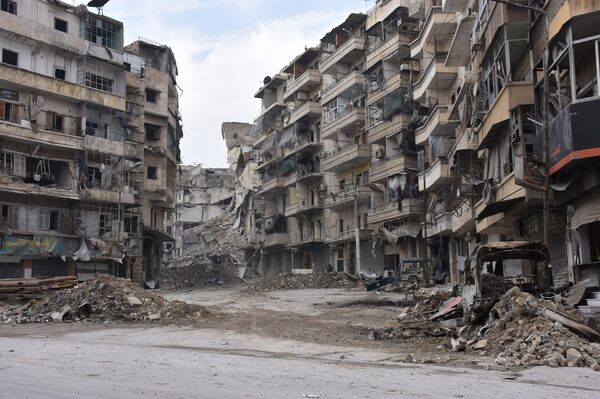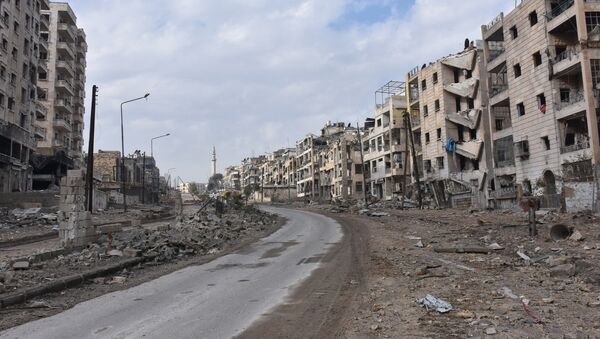"The liberation of Syria's major strategic center, Aleppo, from the armed opposition has changed the course of the Syrian war, propelled strengthening of the Syrian army and increased its morale," Kurdish political official, member of the Syrian Democratic Council Rezan Hiddo told Sputnik Turkiye.
However it came as a serious defeat to those countries which have been supporting the rebel groups operating on the Syrian territory, he added.
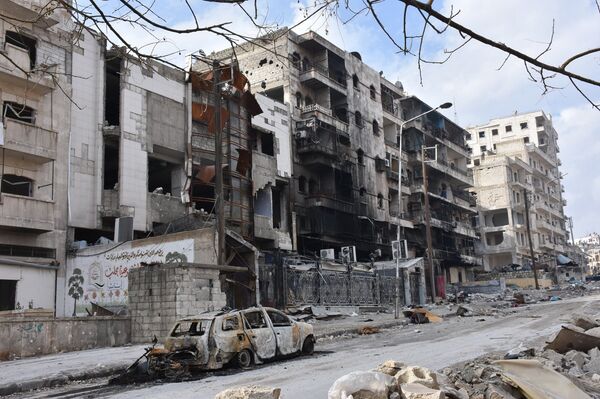
"I mean Saudi Arabia, Qatar and particularly Turkey," he specified.
"Turkey has been supporting the militants with arms and money with an intention to annex Aleppo, which had once been part of the Ottoman Empire. However the cleanup of the city from the armed opposition has ruined the plans of the Turkish leadership. President Recep Tayyip Erdogan failed to reach his goal," he explained.
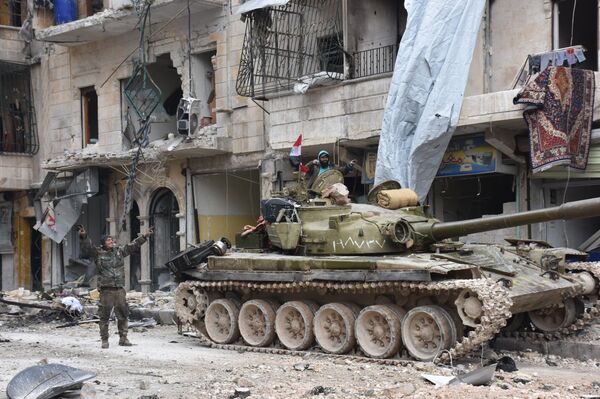
In a separate comment on the issue, Professor Tim Anderson, a distinguished author and senior lecturer of political economy at the University of Sydney, Australia has called the liberation of the city "the most serious setback for the 15-year long Washington-led aggression on the entire region."
"An effective re-colonization of the region has stretched from Afghanistan to Libya, under a range of false pretexts. Invasions and proxy wars have been backed by economic sanctions and wild propaganda," he explained in his article for the OffGuardian independent news platform.
"But this great war of aggression – called the creation of ‘New Middle East’ by former US President George W. Bush – has hit a rock in Syria. The massive proxy armies bought and equipped by Washington and its regional allies the Saudis, Turkey, Qatar and Israel, have been beaten back by a powerful regional alliance which supports the Syrian nation," he elaborated.

Professor Anderson has been long arguing that what had been claimed a civil war in Syria had never been a such.
"The endgame in Aleppo involves a handful of foreign agents – US, Saudi, Israeli and others – said to remain with the last al-Qaeda groups in a tiny part of what was once their stronghold," he writes.
"The US in particular is keen to secure their release, because their presence is further evidence of the foreign command of what was claimed to be a ‘civil war’."
Meanwhile, the Russian military is making public the information about mass graves of torture victims which have been uncovered in liberated Aleppo.
"Mass burial sites of many dozens [of Syrians] have been found; they had been subjected to brutal torture and [then] murdered. In many cases, body parts are missing; most victims had been shot in the head. And this, it seems, is only the beginning," Russian Defense Ministry spokesman Maj. Gen. Igor Konashenkov said earlier.
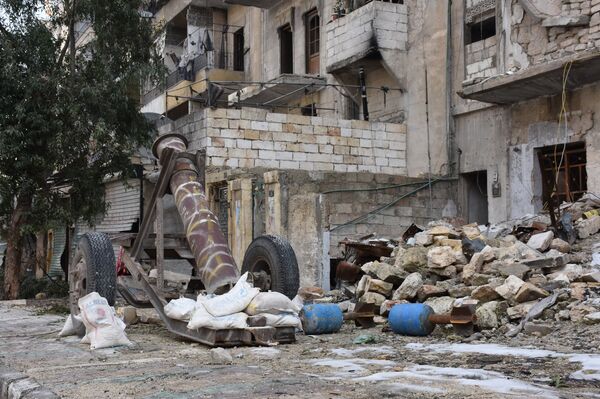
He said that the instances are being recorded as serious war crimes and will be given maximum publicity "so that European backers of the so-called opposition in London and Paris are well aware of who their [friends] actually are."
Professor Anderson also commented on the issue.
"Civilians were prohibited from leaving the al-Qaeda enclave, many were shot dead when they tried to do so. The armed gangs had food reserves but kept it for their fighters. Arms factories including toxic chemicals were found and were being made safe. Some of the armed men were taken into custody, but most were shipped out to Idlib, where Damascus has been concentrating the foreign-backed fighters," he wrote in his article.
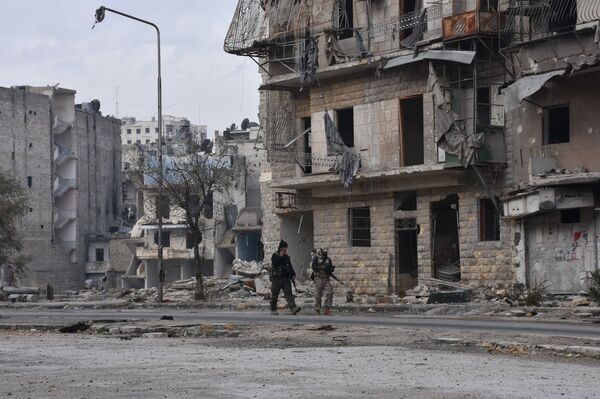
Viktor Murakhovsky, Russian journalist and chief editor of the Russian magazine Arsenal Otechestva (Armory of the Motherland) reminded about the earlier reports of the Russian Defense Ministry which said that some Aleppo areas had been under control of Nour al-Din al-Zenki, a US-backed Islamist group.
Back in November the group, which the west regards as a "moderate" opposition, claimed that it was not going to leave the city. Together with Ahrar al-Sham, they have been keeping thousands of civilians in the eastern part of the city banning them from leaving through the humanitarian corridors opened by the Syrian army.
"All this underlines what should have been an obvious point, admitted by many US officials, that every single armed group in Syria (whether ‘moderate’ or ‘extremist’) has been armed and financed by the US and its allies, in an attempt to overthrow the Syrian Government. All the talk about ‘moderate rebels’, a ‘brutal regime’ and a ‘civil war’ just tries to hide this," Professor Anderson explains.

However he further notes that there is a new regional alliance now in place and that is the one of Russia, Iran and Turkey.
"It is notable that the Obama administration is playing no direct constructive role in the endgame over Aleppo. Its ‘regime change’ proxy war on Syria is failing and, in its place, the incoming Washington regime promises a new approach. More importantly, a new regional alliance has formed to reject any new aggression from the colonial powers," he says.
Many things have changed during the war on Syria, he goes on.
"The Syrian alliance has beaten back powerful NATO-GCC (Gulf Cooperation Council) forces. The Muslim Brotherhood and its patrons in Egypt, Qatar and Turkey have received another beating. Egypt and Iraq now support Syria. The Saudis have joined with Israel again[st] Iran and Syria. Russia has built stronger bonds with Syria and Iran. The Arab league, having backed the destruction of two Arab states, seems all but dead. Will the new, enhanced ‘Axis of Resistance’ take its place?" he finally wonders.
